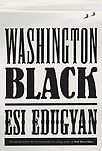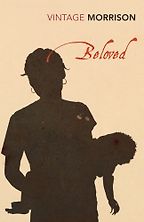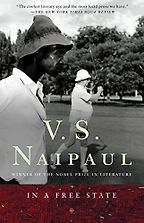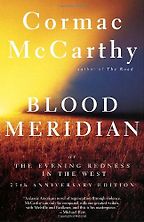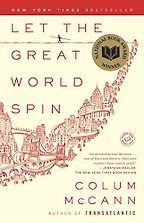Do you have any rituals, superstitions, or habits when it comes to writing?
My superstitions—of which there are many!—mercifully do not extend to my writing. I do have rituals, though, and these involve reading a beautifully written piece of prose for an hour or so before sitting down to my own work—this can be fiction, nonfiction, poetry. Just anything that sparks the imagination.
Did you always want to write fiction?
I wanted to write poetry but discovered fairly early on that I didn’t have the discipline to properly learn the forms, to master metrics, et cetera. I had always been a great reader of fiction, so when I was encouraged in the writing of stories at university, I kept going.
Do you think fiction offers something that nothing else can?
I think it is all too easy, especially given our current age, to deny the humanity of those who are unlike us, to wilfully see the stranger in others. Fiction puts readers into the psyche of characters who may be wildly different from themselves. This intimacy with another’s lived experience is an exercise in empathy. It is not, of course, the exclusive territory of fiction to do this. But fiction can do it viscerally.
Get the weekly Five Books newsletter
How long did it take you, from conception to the final touch, to produce the book for which you have been shortlisted?
All my novels, Washington Black included, have taken three years from start to finish.
Do you share your work-in-progress with anyone?
My husband is also a novelist, and he reads nearly every draft I write. He is the only one privy to my process and I feel incredibly blessed to have his keen eye.
Who do you write for?
Everyone—though I recognize that not everyone will be interested in reading it!
Did you surprise yourself—or did things take an unexpected turn—at any point in the process of writing the book?
Washington Black was one long process of discovery for me, of trying on new outcomes, of allowing the character’s inner journey to dictate the externals of the novel. It was a different approach than I’d taken in any of my previous novels, and at times that scared me.
What was the first word or sentence you wrote for this book, and does it come first or appear elsewhere, if at all, in the finished work?
The first sentence was about Big Kit, and began, “In the smouldering fields she would glisten as if oiled, tearing up the wretched earth, humming strange songs under her breath, her flesh rippling.” It survived the edit, and is on page seven.
Please pick a line at random from page 99 of your book, in tribute to Ford Maddox Ford, and reproduce it for us here:
“I watched the old grey-haired slave turn, and meeting her powerful golden eyes I was suddenly flooded with pain, horrified and confused.”
The first book you’ve chosen is Toni Morrison’s Beloved. Why did you include this book in your list?
I was introduced to this book by an English professor in my first year of university and was shocked by the blunt force of its subject matter and its exquisitely torqued prose. It remains one of my most adored novels.
Your second pick reaches back to the Victorian age—George Eliot’s Middlemarch. Tell us about how you came to this book.
I came to this at exactly the right moment in my life. I was in my early twenties and hungry for long, character-driven narratives. Dorothea Brooke was a wonder to me—Tolstoyan in her richness, truly good without a forced or irritating saintliness.
Moving on, In a Free State by V S Naipaul is your third choice. Why did you include it in your list?
This was the first book of his I came to, and it remains for me his most shocking and blistering. I’ve probably read the opening suite of stories twenty times, while flinching away from the painful novella of the title. Naipaul’s work can be harsh, but it is nearly always moving.
What about your fourth pick, Blood Meridian by Cormac McCarthy? Another interviewee on our site, Aleksandar Hemon, praised this work as “the greatest book of the past 25 years.”
It’s another difficult read that I savour for its wondrous prose and stark vision of humanity.
Your final choice is Colum McCann’s Let the Great World Spin. What drew you to this work?
I have read it a few times now, and I’m still trying to puzzle out how he fit those strands together so beautifully. It is a miracle of a novel.
What books are on your bedside table at the moment? (Or, in spite of best intentions, not necessarily the same thing: what will you read next?)
Days of Rage by Brian Burroughs, about domestic terrorism in 1970s America. I’ve only just started and I’m gripped.
October 11, 2018. Updated: December 13, 2022
Five Books aims to keep its book recommendations and interviews up to date. If you are the interviewee and would like to update your choice of books (or even just what you say about them) please email us at [email protected]
Five Books interviews are expensive to produce. If you've enjoyed this interview, please support us by donating a small amount.

